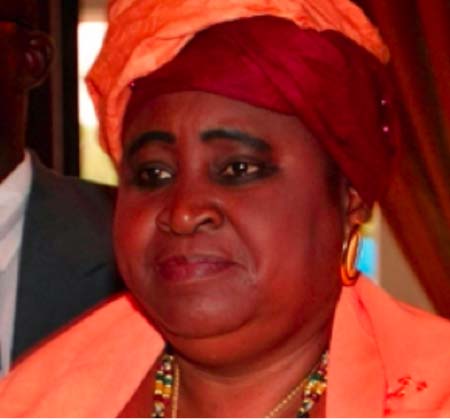
The forum, which brought participants from both the government and the private sector, was held to stimulate intellectual debate and look at policy decisions on key national development issues, with the aim of strengthening the policy-making process.
The theme for this year development forum is: “Deeping inclusive Growth in The Gambia”.
In her remarks on the occasion, Vice President Njie-Saidy commended the United Nations Development Programme (UNDP) and the Ministry of Finance and Economic Affairs for organizing the forum.
She said the forum provided a platform for proper discourse on the theme of the occasion by policy-makers and representatives of grassroots organizations and other institutions.
The forum also provided the opportunity for the sharing of ideas and debate on important and crucial issues to national development, particularly on reaching the MDGs.
The Government of the Gambia “is strongly committed” to developing and maintaining the growth of the country, VP Njie-Saidy further stated.
She added that The Gambia’s Programme for Accelerated Growth and Employment (PAGE) is guiding the country’s development initiative towards its Vision 2020.
The Vice President stressed that the strategy focuses on accelerating growth while generating employment to facilitate poverty reduction and human capital development, among others.
“Government has launched Vision 2016 to give maximum attention to the agricultural sector to achieve food self-sufficiency,” the Vice President continued, adding that the President is currently on his national tour to evaluate agricultural fields.
For the UNDP Country Resident Representative, Ms Ade Mamonyane Lekoetje, the choice of the theme was timely and appropriate, as The Gambia and the world at large approach the final stages of the MDGs and conclude discussions on the post-2015 Agenda.
“Nationally, we are embarking on a process of developing the next successor medium-term development plan running from 2017 to 2020,” she said.
Ms Lekoetje revealed that 2015 is a pivotal year to review progress made towards achieving the Millennium Development Goals (MDGs), identify challenges, draw lessons and put in place a mechanism to localize the Sustainable Development Goals into the national development agenda.
She noted that The Gambia has enjoyed annual average GDP growth rate of around 5 per cent over the last decade.
During this period, she added, the proportion of the population living in extreme poverty fell from 58 per cent in 1990 to 48.4 per cent in 2010.
The UNDP representative pointed out that the multidimensional poverty headcount decreased from 60.4 per cent in 2006 to 57 per cent in 2013 whilst “poverty intensity, measuring simultaneous deprivations of the poor, declined from 53.6 per cent to 51 per cent during the same period.”
She said there are, however, critical challenges that remain to be considered, because “as close to 48.4 per cent of Gambians are below the income poverty of $1.25/day; about 200,000 people are vulnerable to food insecurity, only 44.5 per cent of the population have access to electricity, and only around 39.8 per cent of the population have access to the improved sanitation facilities.”
The forum, she said, was useful to explore strategic options for The Gambia, from building on its past development achievements, to eradicating poverty and advancing the human development of all segments of the population.

